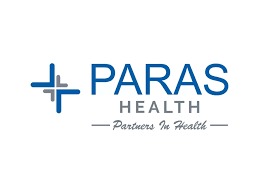Expert warn: High Sugar Diets Found to Drive Hypertension in Children and Teens
Health experts from one of the leading healthcare providers, Paras Health, are sounding the alarm on the growing epidemic of youth hypertension, with added sugars, especially from sugar-sweetened beverages. Recent studies have shown a clear

Health experts from one of the leading healthcare providers, Paras Health, are sounding the alarm on the growing epidemic of youth hypertension, with added sugars, especially from sugar-sweetened beverages. Recent studies have shown a clear link between excessive sugar intake and elevated blood pressure in children and adolescents.
“Parents need to be aware of just how much sugar their children are consuming, often without realizing it,” said Dr. Amit Bhushan Sharma, Director and Unit Head Cardiology, Paras Health Gurugram. “We have come across several cases that have shown young adults becoming pre-diabetic due to excessive intake of processed sugar. For instance, a 21-year-old patient came to us with increased blood pressure, when we evaluated him, it was revealed that he consumes a lot of added sugar and junk food. And, it is not one case, there are significant rise in patients who have sedentary lifestyle that it is affecting their blood pressure and contributing in making them hypertensive. Regularly consuming foods high in fat or sugar can trigger inflammation in your body. These foods also disrupt the balance of healthy bacteria in your gut, an ecosystem that adapts quickly to dietary changes. This imbalance in gut bacteria is linked to an increased risk of chronic diseases, also known as non-communicable diseases (NCDs).”
A review of over 900,000 participants in a study found that sugar-sweetened beverages were associated with a 10% higher risk of hypertension, while healthier foods containing natural sugars like fruits and dairy showed protective associations. A meta-analysis in children and adolescents found the highest sugar-sweetened beverage consumption was linked to a 1.67 mmHg increase in systolic blood pressure and 36% higher risk of hypertension.
Dr. Amit Bhushan Sharma, Director and Unit Head Cardiology Paras Health Gurugram, informed, “Sugar increases blood pressure by contributing to obesity, which is a major risk factor for hypertension. Additionally, the high fructose content in sugar-sweetened beverages can lead to increased blood pressure directly, even in the absence of weight gain. This is because fructose can increase blood pressure by stimulating the production of uric acid, which can constrict blood vessels and reduce their ability to dilate. Furthermore, the high sodium content in many sugar-sweetened beverages can also contribute to increased blood pressure.”
“We are seeing more and more young people develop high blood pressure, which used to be considered an adult problem,” said Dr Amit Bhushan Sharma Director and Unit Head Cardiology, Paras Health Gurugram. “There are several research that has found that sugar-sweetened beverages are a leading contributor to this disturbing trend. Cutting back on these beverages can have a significant positive impact on heart health. According to a recent study by the Indian Council of Medical Research (ICMR), the safe limit for sugar intake is no more than 5% of total daily caloric intake. For a 2000 calorie diet, this equates to about 25 grams or 6 teaspoons of sugar per day. The ICMR emphasizes that this limit includes both added sugars and natural sugars from foods like fruits and dairy.”
Experts stress that reducing sugar consumption, especially from sugary drinks, is a crucial step in combating the rise of youth hypertension. Parents are encouraged to read nutrition labels, choose water and milk over soda and juice, and limit treats with added sugars. By making these simple changes, families can help protect the heart health of the next generation.






